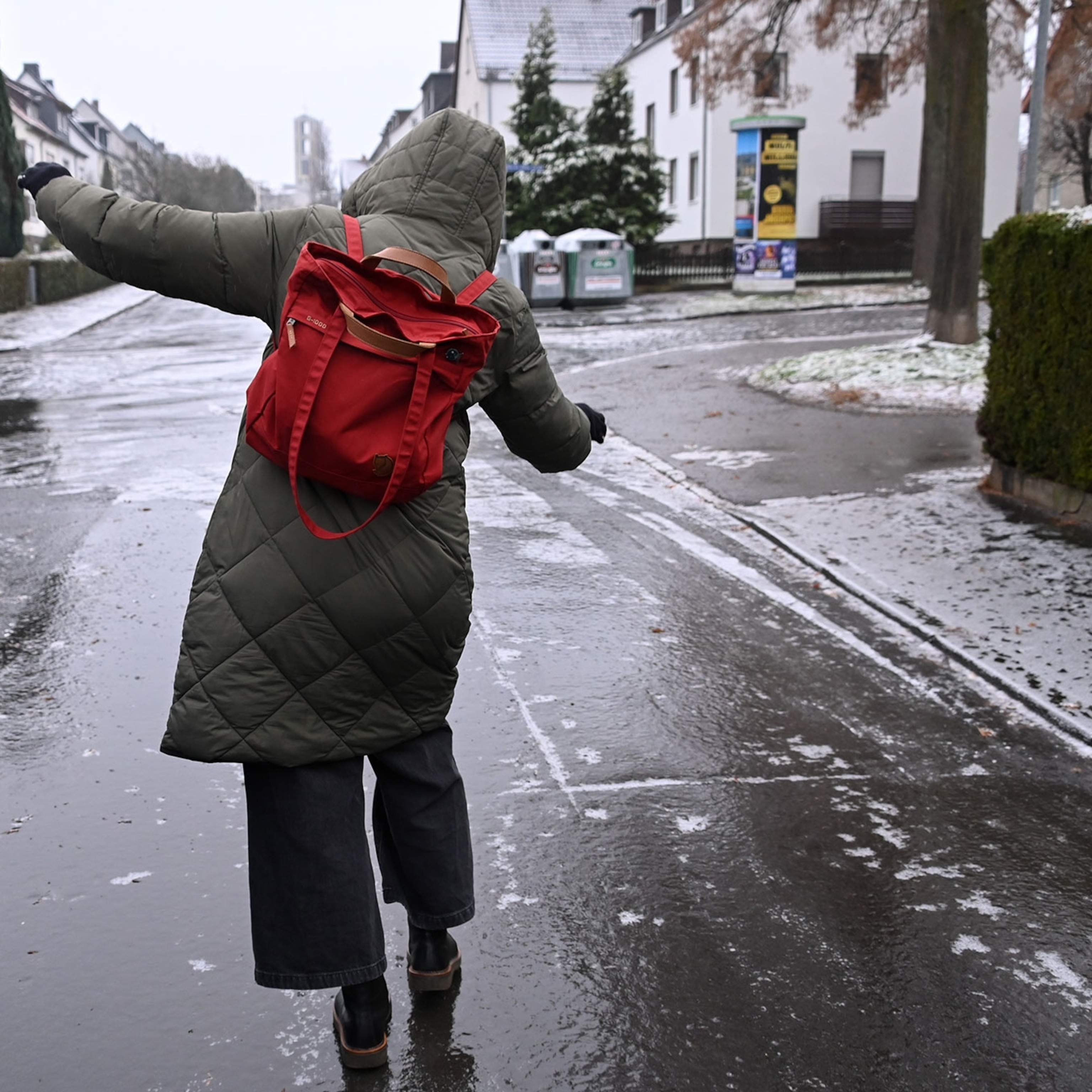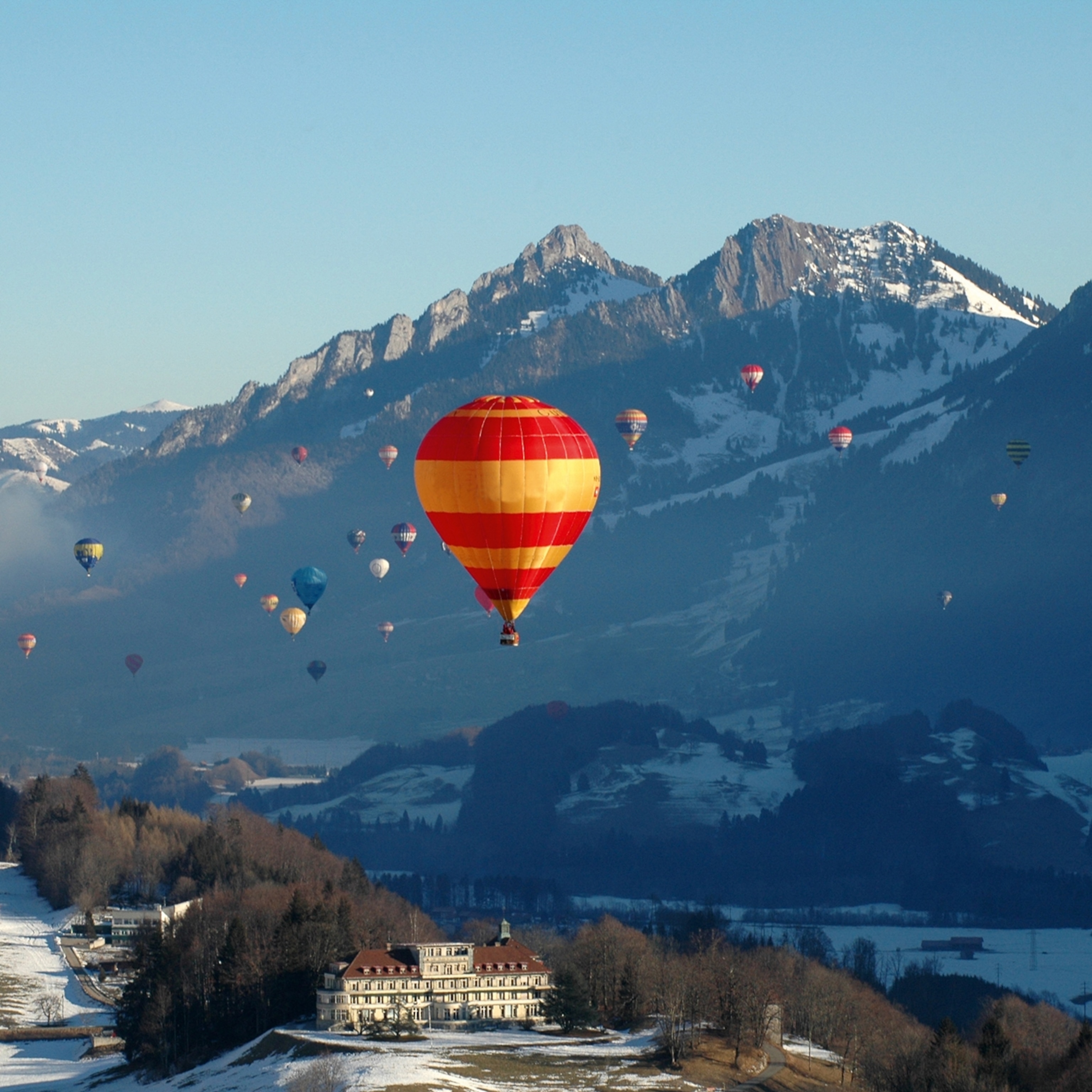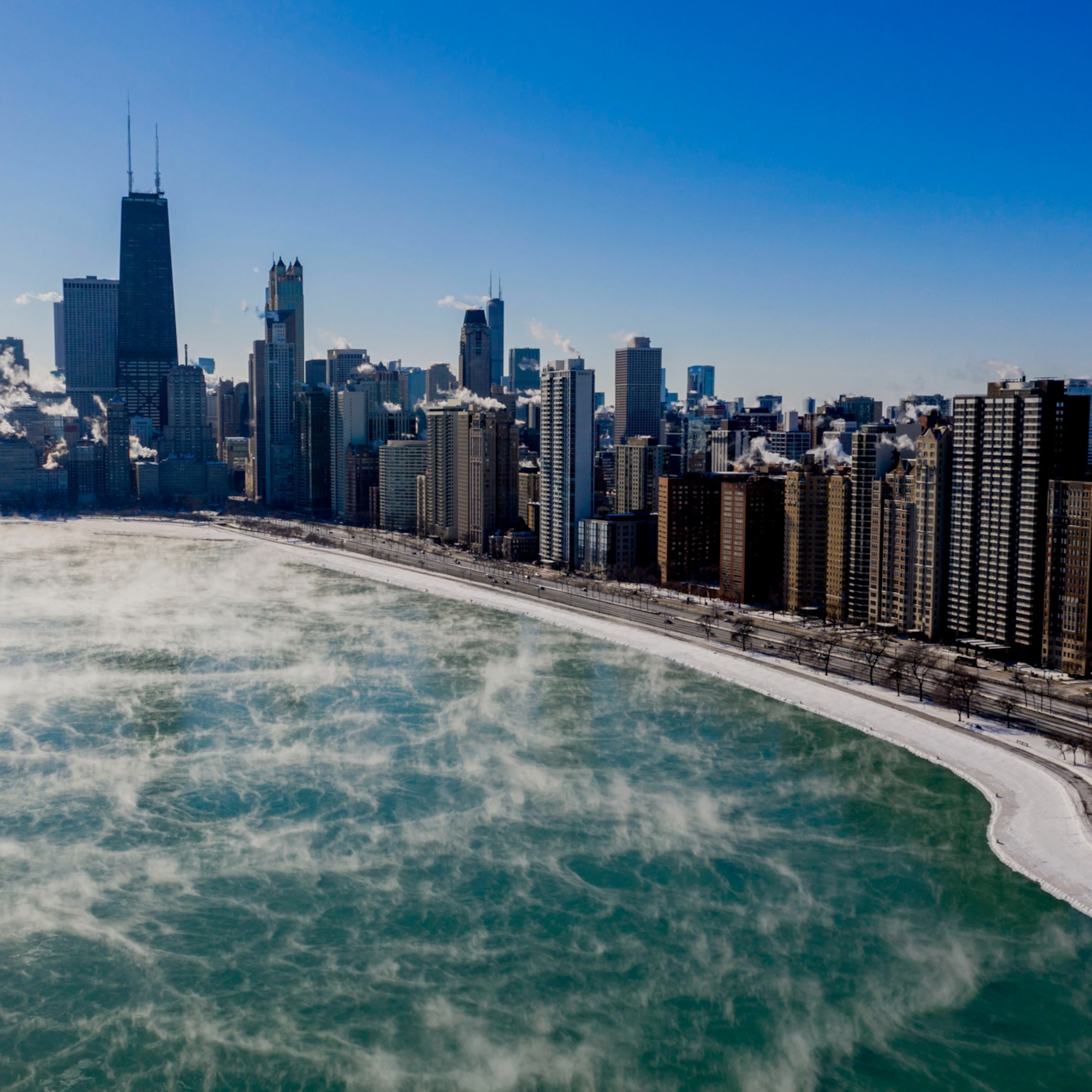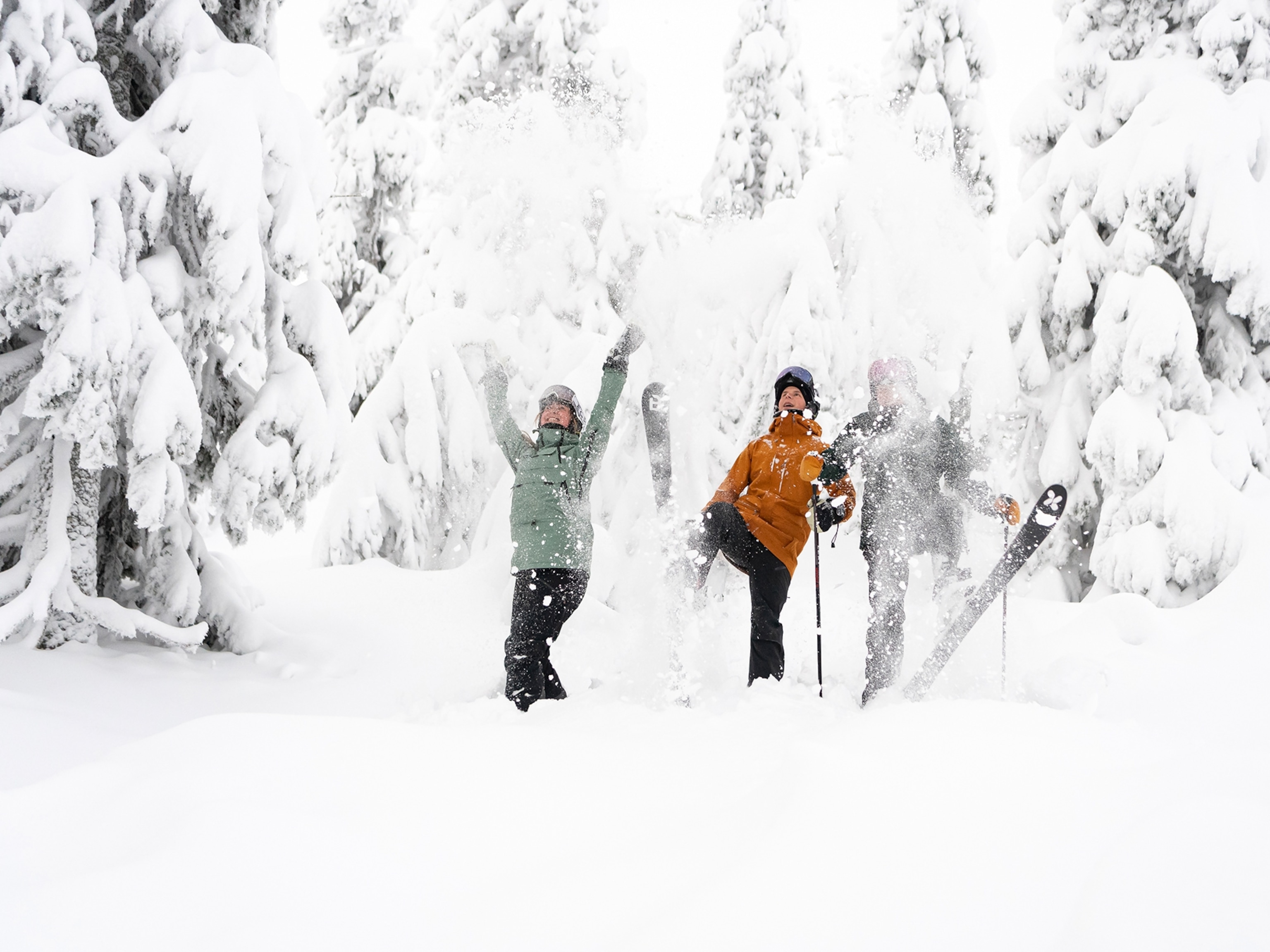
Big winter snows in the North could be fueled by Arctic sea ice loss
A new study finds a direct link between an extreme snow event in Europe and declining Arctic sea ice—and suggests it could be part of a pattern.
In mid-February 2018, a strong high-pressure weather system slid over Scandinavia, bringing cold easterly winds that plunged Europe into a historic deep freeze. Arctic temperatures gripped the continent for weeks; snow fell as far south as Rome. In the British Isles, early March blizzards produced 25-foot snow drifts.
New research suggests that this astonishing cold wave, dubbed the Beast from the East, was supercharged with snow thanks in part to a dearth of sea ice in the Barents Sea, off the Arctic coasts of Norway and Russia. It points to a different and poorly studied way in which declining Arctic sea ice can impact the weather further south—distinct from the meandering jet stream phenomenon that has gotten so much press.
The study, published Thursday in Nature Geoscience, used isotopic matching, satellite data, and models to trace the origins of the snow that fell during the Beast from the East. The authors found that up to 88 percent of it, or 140 billion tons of snow, might have originated from evaporation at the surface of the Barents Sea, where levels of sea ice were unusually low that year.
Over the long term, the researchers say, dwindling Barents Sea ice in the winter could pack the atmosphere with moisture, fueling more extreme snowfall events in northern Europe—even if average yearly snowfall declines because of climate change.
“Given that winter temperatures are warming, increased snowfall might sound counterintuitive,” says lead author Hannah Bailey of the University of Oulu in Finland. “But nature is complex and what happens in the Arctic doesn’t stay in the Arctic.”
More evaporation, more precipitation
The idea that declining winter ice cover can drive additional snowfall isn’t new. Ice acts like a lid over lakes and oceans, preventing the water underneath from evaporating into the atmosphere. Previous studies have tied decreased winter ice cover across the Great Lakes of North America to an uptick in “lake effect” snowfall, while other researchers have used models to explore the link between declining sea ice, increased evaporation, and snowfall, particularly off the coast of Siberia.
But few studies have attempted to directly connect Arctic sea ice losses, enhanced evaporation, and a specific extreme weather event, due to the logistical challenges of collecting samples in the Arctic. The Barents Sea, in particular, is a hotspot of winter sea ice loss, with maximum winter ice cover in March declining by about 50 percent since 1979. That makes it the ideal place to explore such linkages.
And the Beast from the East, which delivered historic snow totals across northern and western Europe between February and March of 2018, made a good test case for the hypothesis that ice losses in the Barents Sea might drive snowfall farther south.
As bitter cold air from Siberia surged eastward that year, a high-pressure ridge settled over northern Scandinavia and the Barents Sea, warming the ocean’s surface as much as 9 degrees Fahrenheit (5 degrees Celsius) above average. With the Barents Sea 60 percent ice-free at the time, any cold, dry air passing over that relatively warm water would have soaked up lots of moisture, says Judah Cohen, an Arctic weather expert at the weather consultancy Atmospheric and Environmental Research.

That appears to be exactly what happened. Thanks to a weather station they had installed in northern Finland a year earlier, the researchers were able to collect real-time data on isotopes of oxygen and hydrogen present in water vapor during the Beast from the East. These isotopes contained information about the conditions in which the water first evaporated, which allowed the researchers to directly trace the moisture back to its source: in this case, the Barents Sea.
Atmospheric modeling further supported the idea that winds associated with the cold air outbreak sucked up moisture from the sea before dumping it across Europe as snow, in a series of three pulses from mid-February to the end of March.
Historically, Bailey says, the Barents Sea has averaged about 65,000 square miles more ice cover in late winter than it had in 2018. Without so much exposed ocean surface supplying moisture to the atmosphere, the Beast from the East might have been a very different event—with much less snow. Using a tool called reanalysis, which let the authors model weather patterns in the past, they found that 140 billion tons of moisture evaporated from the Barents Sea during that cold spell. In the same timeframe, 159 billion tons of snow fell across Europe, suggesting that up to 88 percent of it might have come from the Barents Sea.
Cohen, who wasn’t involved in the new paper, says that it “went much further in solidifying the relationship” between less sea ice and more snowfall compared with earlier research. “What’s especially novel was the use of [isotope] tracers to actually link the snowfall back to that region,” he says. “I hadn’t seen anything like that before.”
A sea ice-driven snow trend
While the study focused on one especially snow-filled winter, it also points to a longer-term trend.
Using atmospheric models and satellite observations of sea ice cover as far back as 1979, the authors found strong correlations between less Barents Sea ice, more sea surface evaporation, and higher maximum March snowfall totals across northern Europe. Looking forward, climate models suggest that the Barents Sea could become ice-free in the winter by the early 2060s, potentially creating a major new source of wintertime moisture for the region.
The link between sea ice and snowfall described in the study is “very much the next logical step” in thinking about the impacts of a more exposed Arctic Ocean, says Andrea Lang, an atmospheric scientist at the University of Albany who wasn’t involved in the paper.
Lang points out that other researchers are now investigating potential links between declining sea ice and an increase in summertime Arctic cyclone activity. While the processes involved are somewhat different, the notion that changes in sea ice can directly affect the weather is “currently a hot topic,” she says.







